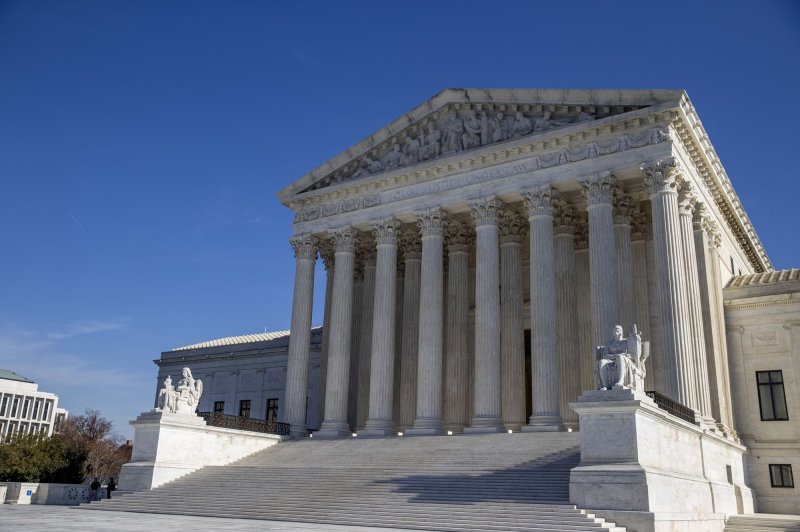Image of the Supreme Court in Washington, D.C. on December 1, 2021. The court ruled in favor of Oklahoma on Wednesday saying it had the right to prosecute crimes on Native American territory of non-Native Americans. File Photo by Tasos Katopodis/UPI |
License Photo
June 29 (UPI) -- The Supreme Court on Wednesday narrowed its own 2020 landmark decision where it broadened the jurisdictional rights of Native Americans on reservations in Oklahoma.
In a 5-4 decision, the court allows Oklahoman authorities to prosecute non-Native Americans who commit crimes against Indians on reservations.
In 2020, the Supreme Court ruled 5-4 that much of eastern Oklahoma was still considered part of the Muscogee (Creek) Nation reservation, meaning state prosecutors didn't have authority to pursue cases against American Indians there.
The difference in the decision from two years ago was Justice Amy Coney Barrett, who sided with the conservatives, whereas late Justice Ruth Bader Ginsburg voted with the liberal justices and Neil Gorsuch in limiting the state's power on Native American land.
"The Constitution allows a state to exercise jurisdiction in Indian country," Justice Brett Kavanaugh wrote in his majority opinion.
"Indian country is part of the state, not separate from the State. To be sure, under this Court's precedents, federal law may preempt that state jurisdiction in certain circumstances. But otherwise, as a matter of state sovereignty, a state has jurisdiction over all of its territory, including Indian country."
The ruling said that Oklahoma and other states share criminal jurisdiction with the federal government in Native American lands when the accused is a non-Native American.
In a stinging dissent, Gorsuch wrote that the State of Oklahoma's effort to prosecute crimes on Native American land was nothing more than "an unlawful power grab at the expense of the Cherokee."
"Where this court once stood firm, today it wilts," Gorsuch said. "After the Cherokee's exile to what became Oklahoma, the federal government promised the tribe that it would remain forever free from interference by state authorities."















